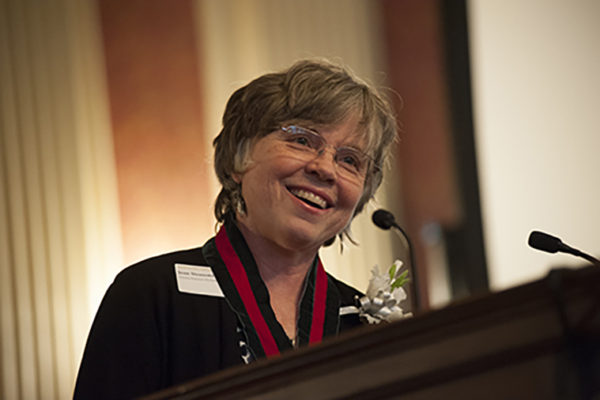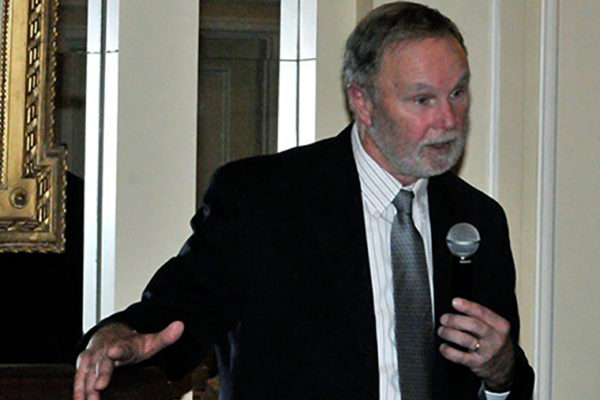Students in CELect course make impact on local startups
St. Louis is becoming widely recognized as a successful hub for startup businesses, with a wide range of groups and services that provide a support network for budding entrepreneurs. WUSTL students are getting a firsthand look at one of those resources this semester as they help formulate pricing strategies, marketing plans and competitive analysis for businesses working at T-REX in
downtown St. Louis.
Skemer will use NSF CAREER award to understand rock flow in Earth’s mantle
Philip Skemer, PhD, assistant professor in the department of earth and planetary science in Arts & Sciences at Washington University in St. Louis, has won a prestigious Faculty Early Career Development Award (CAREER award) from the National Science Foundation. He will use the award for a series of experiments in which rock samples will be deformed at the extreme temperatures and pressures they encounter along the boundaries where plates collide.
Students win top prize in GlobalHack competition
Seven current and former Washington University in St. Louis students, collectively known as “The Force,” took home the top prize of $50,000 during the GlobalHack event held Jan. 31-Feb. 2 at Union Station in St. Louis.
Strassmann installed as Charles Rebstock Professor of Biology
Biologist Joan E. Strassmann, PhD, was installed Jan. 23 as the Charles Rebstock Professor of Biology in Arts & Sciences in a ceremony in Holmes Lounge. Following the formal installation, Strassmann gave an entertaining talk about a high-stakes gamble she and Queller made 15 years ago: to switch from studying cooperation and conflict in social insects, famous for their complex societal arrangements, to studying it in an amoeba, whose claim to fame had been its simple lifestyle.
Daydreaming about summer excursions?
Along the Missouri River between St. Louis and Hermann, a restored German
settlement, is an enchanted valley blessed by
low-density land use where people grow North American grapes for
Missouri wine, groundcover in interlocking trays for green roofs,
vegetables for St. Louis locivore restaurants and native trees for
environmentally conscious landscapers. WUSTL readers will recognize many of the contributers to Missouri River Country, a book that celebrates this land and the people who have lived there. All proceeds from the book’s sales will go to land conservation.
Institute for School Partnership’s Darwin Day celebration to highlight evolution education
WUSTL’s Institute for School Partnership is committed to evolution education as part of a sound K-12 science curriculum, and it kicks off its second annual Darwin Day celebration Friday and Saturday, Feb. 7 and 8, with workshops for teachers and students. Darwin Day is celebrated internationally on or around Feb. 12, Darwin’s birthday, as a celebration of science and humanity. Highlighting the weekend on the WUSTL campus: a visit from alum Sean B. Carroll, PhD, vice president for science education at Howard Hughes Medical Institute.
Happy 10th anniversary Opportunity!
Ten years ago, on Jan. 24, 2004, the Opportunity rover landed on a flat plain in the southern highlands of the planet Mars and rolled into an impact crater scientists didn’t even know existed. In honor of the rover’s 10th anniversary, Ray Arvidson, PhD, deputy principal investigator of the rover mission, recently took an audience on a whirlwind tour of the rover’s decade-long adventures and discoveries.
NASA’s Opportunity at 10: new findings from old rover
In the Jan. 24 edition of the journal Science, Ray Arvidson, PhD, a professor at Washington University in St. Louis and deputy principal investigator of the MER mission to Mars, writes in detail about the discoveries made by the Opportunity rover and how these discoveries have shaped our knowledge of the planet.
Academy of Science of St. Louis honors four WUSTL researchers
Four Washington University in St. Louis researchers are being honored as outstanding scientists by the Academy of Science of St. Louis.
Washington University to sponsor Hawthorn Leadership School for Girls — the region’s first all-girls STEM charter school
Women are underrepresented in the important fields of science, technology, engineering and math — minority women even more so. To help close the gender gap, Washington University will sponsor an innovate new charter school: the Hawthorn Leadership School for Girls, the first single-sex STEM charter school in St. Louis.
Older Stories




